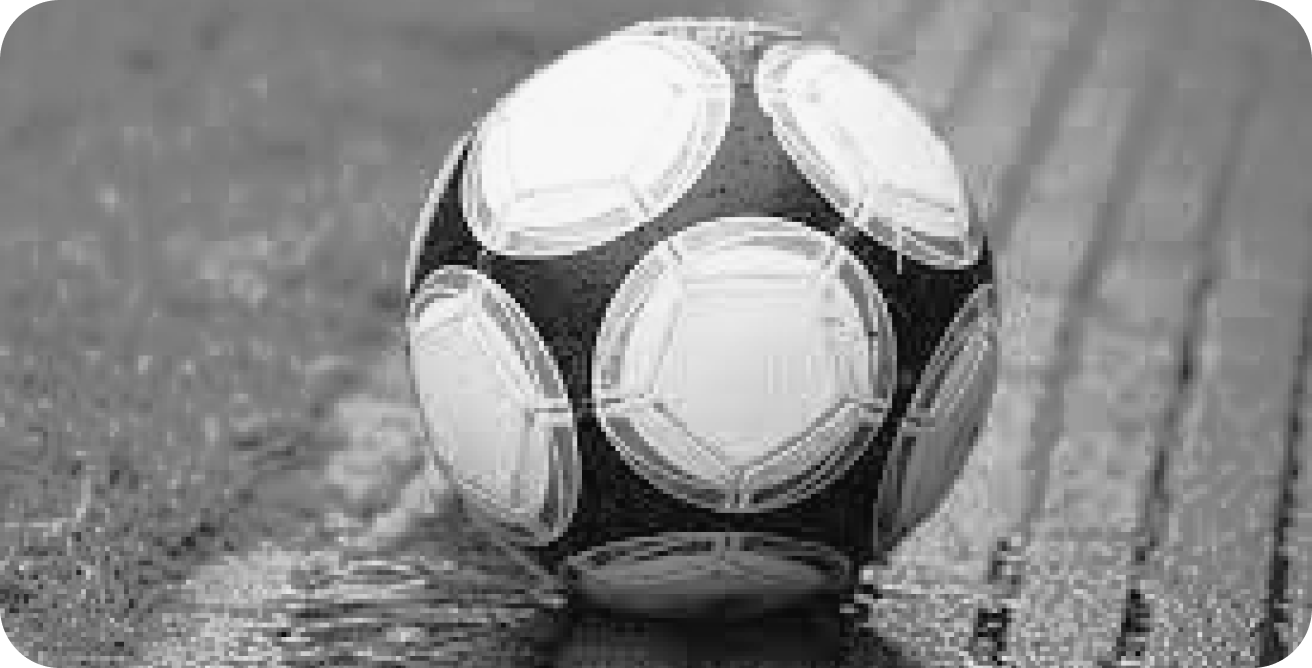Soccer Rain: The Complete Guide To Playing Soccer In The Rain
Soccer Rain is a phenomenon that describes the beauty of nature, but it can also cause trouble in our daily life. When you are playing soccer in the rain, it is hard to play soccer in rain. The rain doesn’t always result in the cancellation of soccer games like other games i.e., baseball, golf, cricket, and tennis are disrupted by rain.
Why it is unsafe or advisable to play in soccer rain?
Soccer game, which is played on an open field in the rain, can become dangerous because of the numerous open areas. Lighting and thunderstorms may easily stick to the ground in a rainy season and so playing soccer in the rain can be difficult for players. For example, a 16-year-old boy was injured during rain in July 2020 when lightning struck him while playing outside and then stuck to his body.
In 1998, a whole soccer team in the Democratic Republic of the Congo was killed by lightning during a practice match. Thirty spectators were injured who were present in the open field during that gameplay. This is because playing soccer in rain is risky for soccer players.
Simply it is easy to play in soccer rain but Due to the increased risk of injury and death in lightning storms and thunderstorms, referees are strongly advised to end soccer matches before the storm arrives. Rain soccer is difficult to play under these conditions.
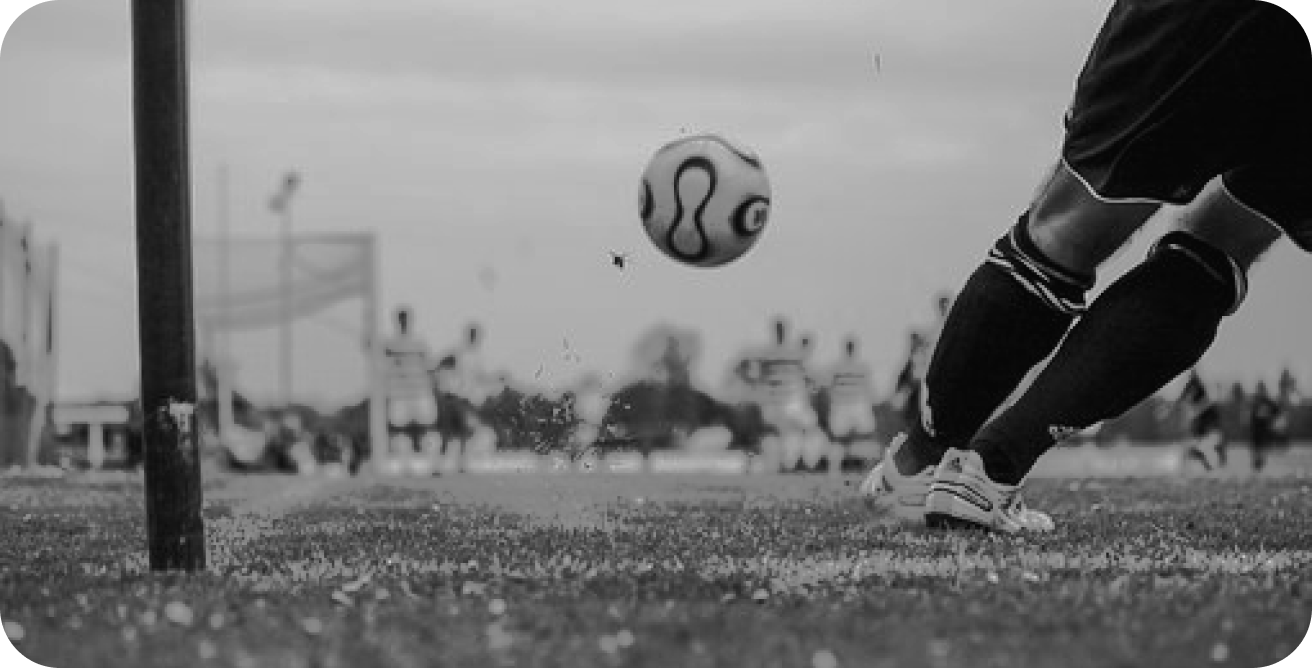
Here are some ways by which soccer gameplay gets affected by the soccer rain-
Makes the ball slippery and hard to hold
Playing soccer in the rain can cause a ball to become slippery, making it more difficult for players soccer in rain to catch or shoot the ball. This can result in miskicks and incompletions as well as poor catches. The impact of a slick ball on a soccer goalkeeper has not been studied, but players are still not tolerant of this condition.
The goalkeeper’s task of trying to catch a slick ball is more difficult than trying to catch a dry ball for the opposing team. Even if the goalkeeper has perfectly executed the catch, the ball can swing from their grip allowing an opposing player to score. This is only because of the soccer rain or soccer weather conditions.
Because of this, some goalkeepers will favor punching the soccer ball rather than trying to catch it. while playing soccer in rain. Goalkeepers can compensate for a slippery ball by wearing special soccer equipment that increases their grip on the soccer ball.
Soccer players often find it difficult to throw a ball in the air when it’s slippery. This is why they sometimes clean the soccer ball using their soccer jersey, especially when attempting a long throw. In addition, rain soccer can make it more difficult to manage the ball when moving, chesting, or snaring. The ball could easily graze your surface and land in places you don’t want it to.
lumpy Pitch
In 2012, the English Football Association canceled a qualifying match between England and Poland due to heavy soccer rain. Officials deemed the Warsaw pitch unplayable.
Wet pitches tend to be a challenge for soccer players, who often find that their kicks are not as effective as they would like. (They also expend more energy than they should.)
When playing on a wet pitch or when playing soccer in the rain, there are a few steps that will not be successful. For example, soccer slide tackling is prohibited due to the risk of sliding into other players. Similarly, hitting the ball down to defeat the soccer goalkeeper will fail since the ball will not bounce.
A field or fabric shot will travel no farther than a few yards because it will become entangled in the muddy puddle. In rainy weather, the best way to keep the soccer ball moving is to hold it aloft at all times.
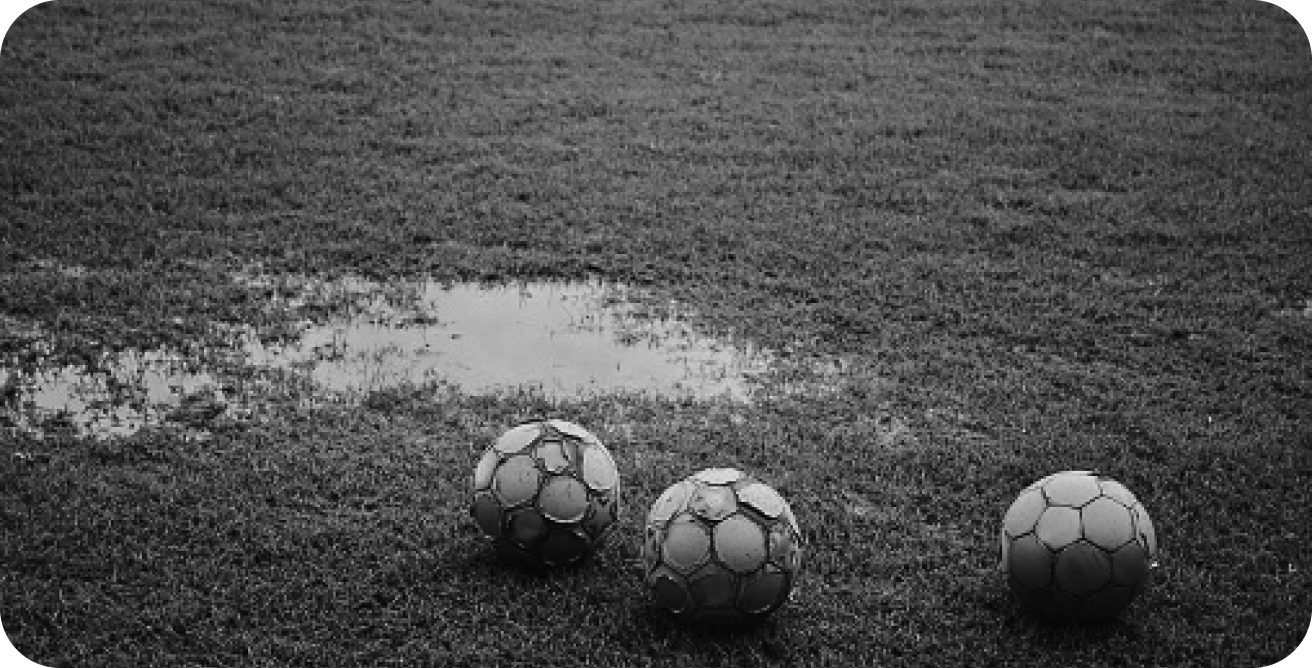
When playing on soggy fields, soccer players become frustrated and tired. Rain soccer has a greater impact on natural turfs because it causes holes, boggy areas, and creeks on the pitch. Artificial turf has great benefits over natural grass because it does not require mowing or watering and does not wear down as quickly.
Visibility is limited
It is harder for soccer players and goalkeepers to observe the ball when it is raining because their eyes will be strained trying to keep open while they play soccer in rain.
Soccer goalkeepers must keep their eyes open in order to react quickly to the ball, but visibility can be poor at times. For example, if a goalkeeper changes lanes on the ball while it is being kicked, this will give the opponent more of an opportunity to score a goal.
Goalkeepers may be forced to play behind a backline that has less visibility, which can add pressure to their performance. However, there are some ways to overcome this problem.
Goalkeepers are more difficult to stop on the ground than those who are elevated. When the playing surface is waterlogged, shots will come directly toward the goalkeeper and will not be able to hit him before he can catch it.
When soccer rain, fans suffer as well because they are unable to see the field. Fans with medical conditions may be forced to leave crowded sections of the stadium.
Low immunity
Cold weather can reduce the body’s ability to fight disease. When rain falls on natural grass, microorganisms in the soil are carried into the air, where they can cause illness.
When it rains, soccer players are more likely to become infected due to a combination of low immune function and microorganisms becoming present in the air. Because of this, it is a bad idea for any soccer player with a health issue to playing soccer in the rain.
Soccer tips to play in the soccer rain
Playing soccer in the rain is probably safe, but it is never the same as playing in dry conditions. The difference is small, but there are some points to consider. Playing soccer in rain can affect a player’s motor skills and decision-making processes. These simple changes can often help a soccer player achieve the best of his qualities when playing in wet weather.
Before the match starts, check the play area
In order to determine the condition of the soccer field, officials should inspect the pitch before deciding whether or not to allow a game to continue. However, players must also be prepared—after all, they’ll be playing on that field for 90 minutes.
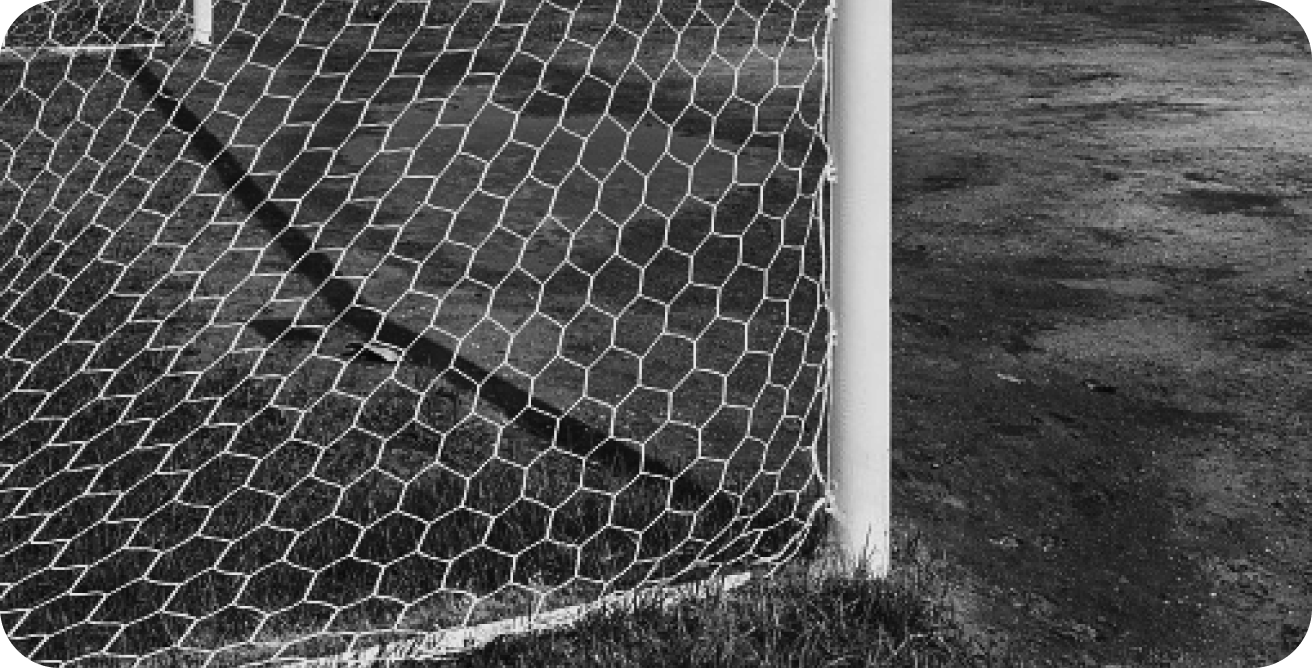
A soccer player can predict how well his team will play in bad weather by considering the effect of soccer rain, the wetness of the field, and field conditions on his teammates’ games. This is especially true at the end of a game when such conditions are much worse.
Think about various unique ball throw
Playing soccer in the rain is a challenge. Different balls react differently when wet, based on the amount of water on the field and the amount of rain that fell. However, this does not mean that your ball will bounce the same way each time it’s played in wet conditions.
In rain soccer, when a ball bounces after a long pass, it becomes more difficult to control. It will have a different bounce and speed than the original pass, but it will increase in velocity and become more difficult to control.
Use the correct soccer sneakers
During a game of soccer, players wear soccer shoes. However, they can vary depending on the conditions. On a wet surface to in soccer rain, regular soccer sneakers would be ineffective and require specialized shoes.
While playing soccer in rain, it is best to wear metal studs (or cleats) on your sneakers. These will allow you to remain on your feet and balance yourself across a grass field so that you will not slip and injure your opponent. However, be aware of the dangers involved when using these cleats as they can cause significant pain if stepped on by an opposing player.
Maintain your balance
When it rain soccer during a match, players must be careful not to slip and fall on the wet grass. The friction between the ball and the ground can cause players to trip and fall, which can result in turnovers in possession.
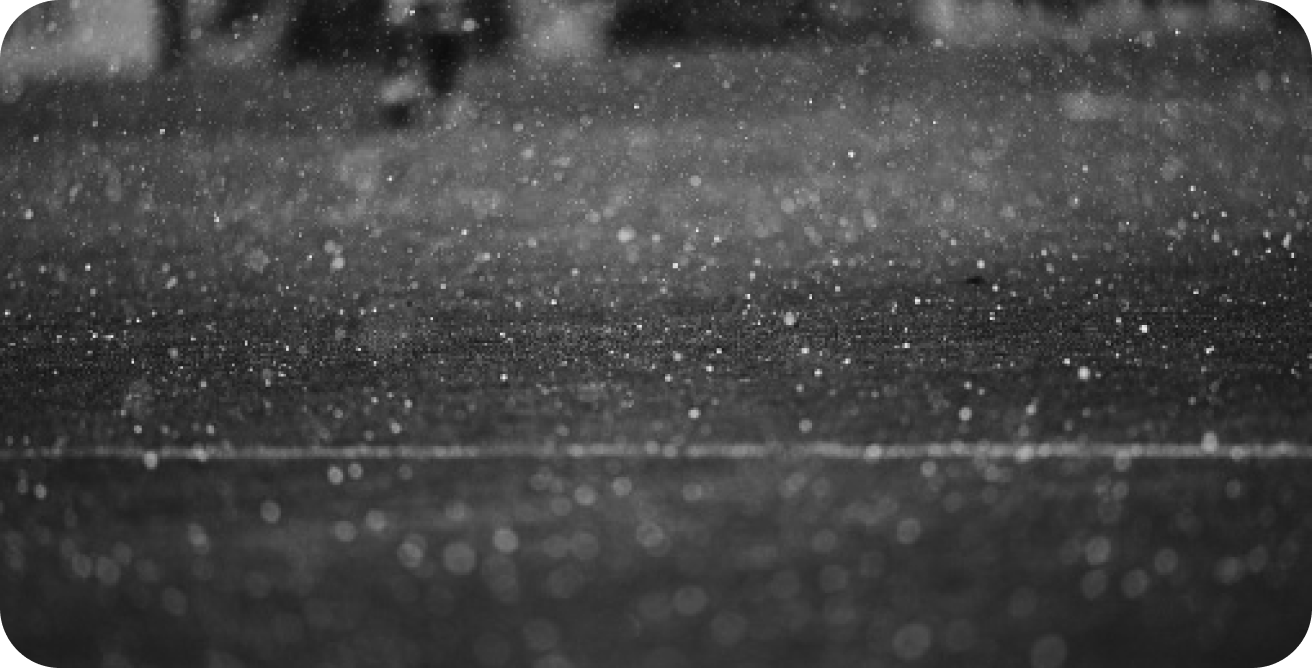
As a result, many soccer players slip on the ground and make a more bad tackles on the opposing player. It is difficult to time and execute the tackle when playing in normal, dry weather.
Far away shoot
This is a compelling point of advice, as it relates to the previously stated various flips of the ball. When there has been a lot of rain and soccer players are tired of kicking long shots, they will often decide to shoot from a distance in order to compete with their opponents.
His view is slightly impaired, making it more difficult for him to handle a wet ball. This makes the soccer goalkeeper’s job much more difficult and makes you put him to the test by shooting more frequently.
Aggressive Gameplay
In soccer, the ability to move the ball quickly in a muddy field is not as important as it would be in a dry one in soccer rain. Even if you move the ball quickly and accurately, your throws will be less accurate when the ground is dry. Soccer is played with your brain cells rather than your feet, so you need to use every advantage possible.
Playing soccer in the rain is made easier by playing more straightforwardly. That means playing vertically rather than side to side in the field.
Also, try to keep the ball as high off of the ground as possible. Set it up a few times across the field for your forwards to catch. By utilizing more air during a rain soccer game, you reduce the risk of the ball becoming trapped in some stupid mud. A rain soccer game should favor an air game over a ground game.
Limited shooting
When the ground is too wet for your game, you can use that fact to your advantage. If the field is too wet, it will affect your shot as well as other players’ shots. If the ball suddenly changes speed and direction while traveling toward goal, it will be difficult for a goalie to block it.
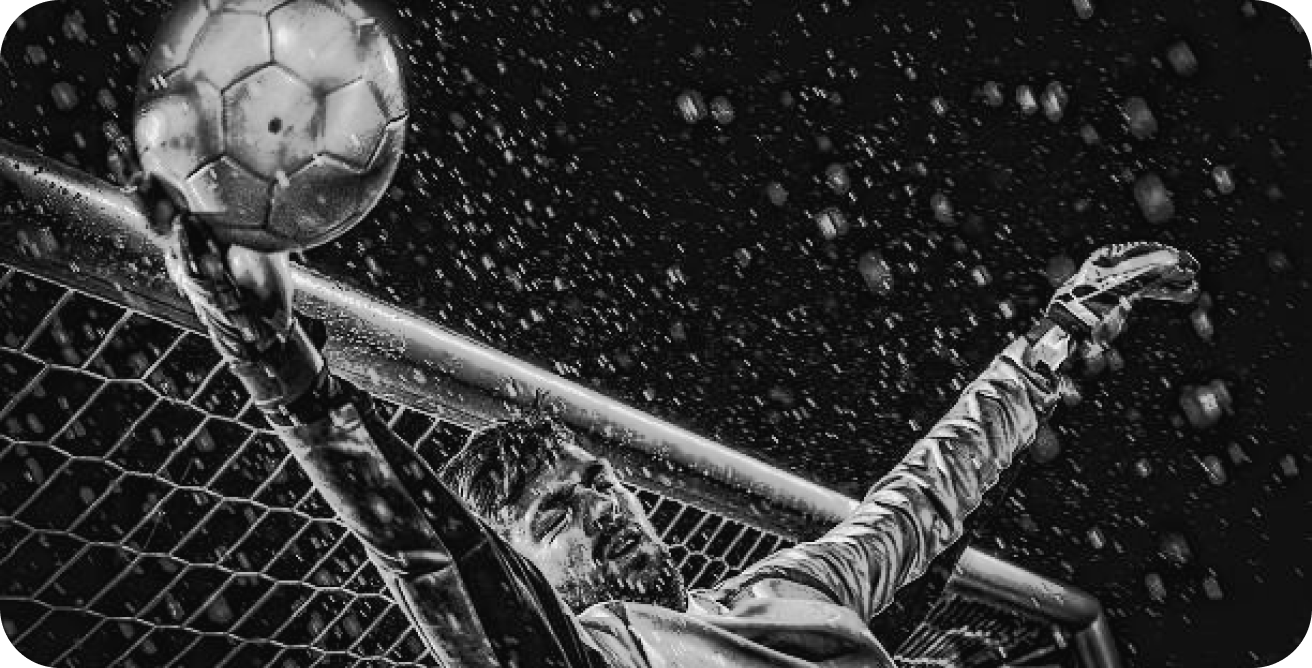
Make use of tackles
Slide tackling is a great way for defensive players to get the ball away from strikers in soccer rain. However, many people try to prevent it in dry conditions because they fear nasty scratches, burns and other injuries. Slide tackling especially on artificial turf is dangerous because of its slippery surface.
While playing soccer in the rain, the surface of the pitch becomes slick and difficult to grip. Sliding is easier and smoother, and pressure on your body is reduced to almost zero when the ground is watery. This affects how quickly you can tackle properly and makes it more efficient.
Get proper safety measures
As the game becomes more difficult, players become faster and more aggressive. On rain-soaked pitches, they slide tackle more often than they do on dry ones. Because of this, they are at greater risk of being hit or injured.
Extra Clothing
Always carry two items in your bag: extra clothing (pants, underwear, t-shirt, socks) and a towel to change into after playing soccer in the rain.
Properly dried & cleaned
It is important to allow your shoes to dry naturally after a match if you are playing in soccer rain. If you start leaving them wet from within your backpack, the durability of your sneakers would be down. Boots with a lot of structures and prime knit elements, which are actually pieces of linen that can decompose, must be allowed to dry in natural weather conditions.
What do you wear for soccer rain matches?
In some cases, having the right soccer equipment can be critical to performance. Players who feel comfortable on the field allow themselves to focus more on the sports aspects of their performance while playing soccer in the rain. The following are the items that are widely suggested for games played in rain or snow:
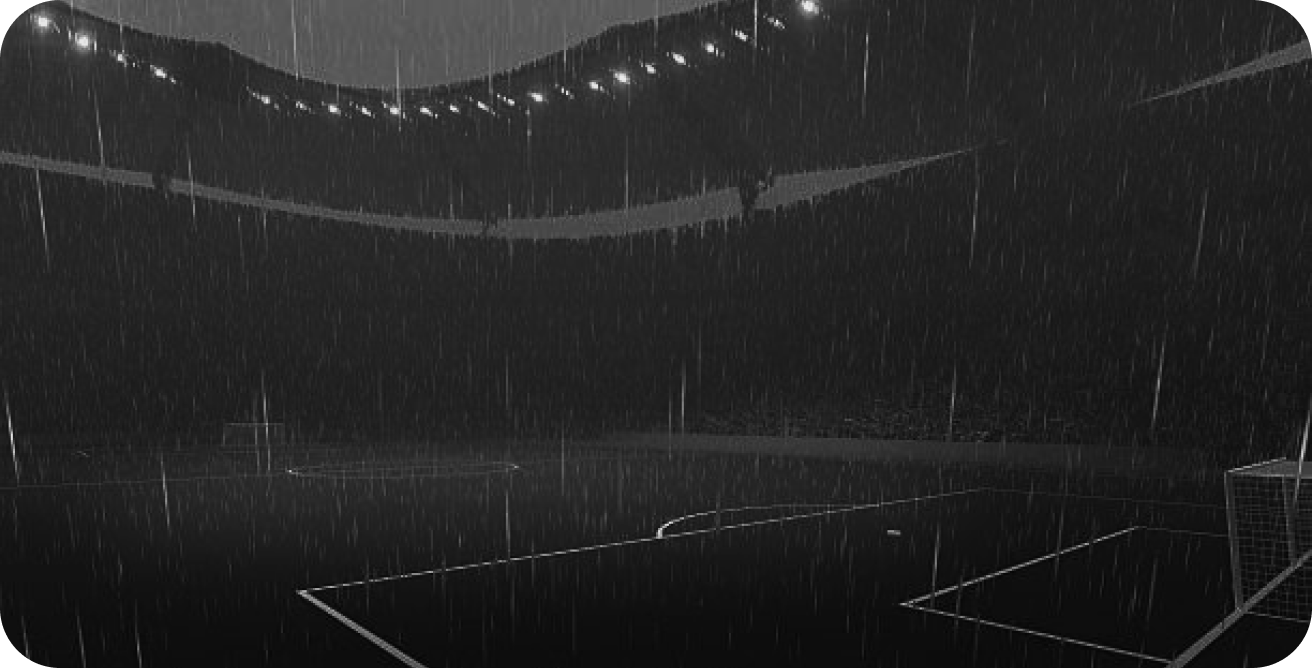
Gloves
Soccer goalkeepers wear protective gloves and tight grips to prevent the ball from entering their goal during games. Fielders wear gloves mainly for comfort and warmth. When it rains, temperatures usually decrease as well, making it important to keep your hands warm. Goalkeepers also wear these protective gloves when they compete in matches to protect their hands and avoid injury.
Long length socks
Soccer player must protect their legs by wearing long stockings when playing in wet conditions. The socks should extend above the knees; they will help prevent the player’s legs from getting covered with mud or snow during matches.
Pants for goalkeepers
Goalies are likely to be the least active participants on the ground during a soccer game, which is why they wear goalie pants. These pants provide an extra layer of body protection, as well as keep blood flow in the tendons and muscles going by providing heat.
Boots or grass shoes
When playing soccer in the rain, it is important to have a pair of shoes or Astro sneakers that will solve the problem of ankle grip. These boots allow players to move the ball around the field without fear of falling down.
Some Frequently Asked Questions about Soccer Rain
Does soccer get Cancelled for rain?
In the case of heavy rain, soccer games are typically canceled. This is because playing soccer in the rain or heavy rain makes it more difficult for players to control the ball. The authorities test the balls to see if they roll freely on the ground; if they do not, then it may be canceled.
Is it safe to play soccer in the rain?
The soccer game is not affected by rain because soccer players have experience playing soccer in rain, muddy, wet and slippery conditions, and do not get affected by it. On the other hand, excessive soccer rain can cause a match to be postponed or make the ground unplayable.
Why is soccer played in the rain?
Some soccer players prefer playing on muddy surfaces so that the ball rolls faster, resulting in more exciting games. They also play in soccer rain. Some teams wet the ground before every match and also during gameplay. On the other hand, some teams prefer to play on dry ground for their gameplay.
What should I wear for soccer rain?
If you are planning to playing soccer in the rain, you should wear a soccer long-sleeve t-shirt or a soccer jersey with an upper. If it’s cold, wear two full sleeves of t-shirts and a soccer rain jacket over that. To maintain warmth, wear soccer gloves on your hands.
Can Soccer Players Train In The Rain?
There are different rules and formats for different soccer coaches and soccer players, which also depend on their preferences. However, if a team gets qualified or wants to play league matches, they all practice soccer training in the rain or any weather. The gameplay and soccer team strategy gets affected by weather conditions.
For example, if a team belongs to the Russian continent then they have only experience of ice weather, not the summer or heaty or vice versa, and the same if a team belongs to the eastern continent then it has only experience of playing in heaty weather, not in ice or cold weather. Sometimes, the practice is also gets affected by weather conditions or unfavorable changes in the climate; if a soccer player wants to play in league matches then he or she will play or train in soccer rain.
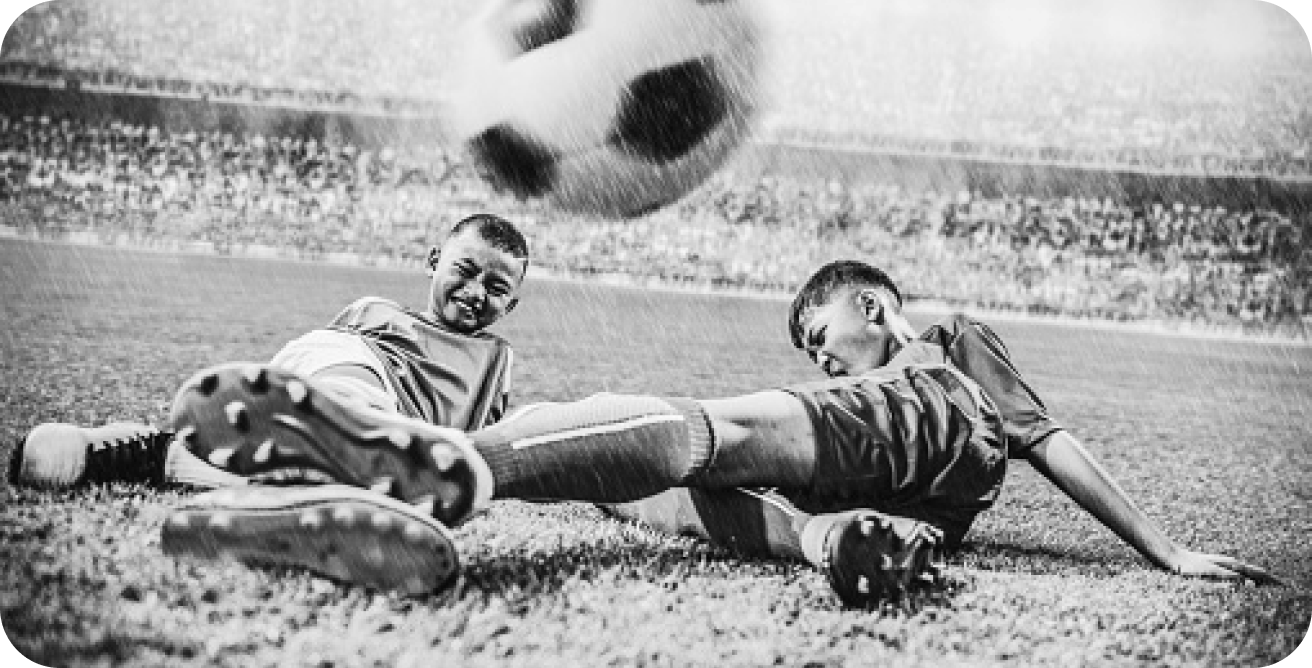
Conclusion
Playing soccer in the soccer rain can be a challenge, but with these tips, you can get more familiar with the climate and less stressed when trying to play soccer in this climate. Nothing on this list will significantly improve your performance, so don’t spend money on untested technology or shoes with grippy straps. Rather than trying to improve your ball control by practicing in soccer rain conditions other than those typical for playing soccer in the rain or during a heavy downpour, focus on your own effort and skill level.
